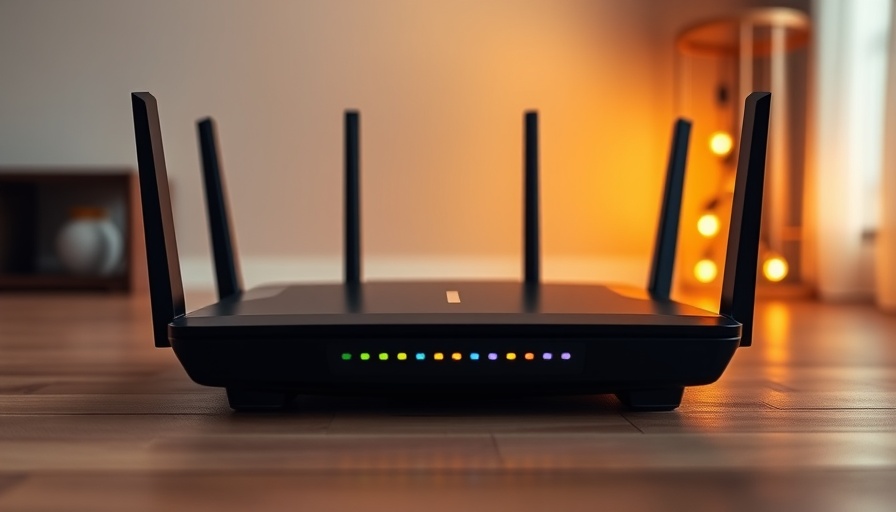
The Battle of Connectivity: Traditional Routers vs. Mesh Networks
With the continuing rise of remote work, a robust home internet connection has never been more essential. The debate between traditional Wi-Fi routers and mesh networks intensifies as many families simplify their tech needs. Understanding the differences may aid in making an informed decision.
Understanding the Traditional Wi-Fi Router
A traditional router serves as a central hub, offering a single access point for your internet connection. These routers have evolved significantly and can provide strong coverage and speed for most homes. They are particularly effective for smaller spaces, where a single device suffices to connect multiple devices without lag or interference.
The Rise of Mesh Networks
On the other hand, mesh networks introduce a network of interconnected nodes that spread their signal across a larger area. This technology shines in larger homes or environments with challenging layouts, eliminating dead zones and ensuring a stable connection from room to room. Mesh networks are becoming increasingly popular, especially as home devices multiply, and the demand for consistent internet access grows.
A Personal Touch: Considering Your Home Setup
Before making a choice, it’s crucial to consider your space. If your home is modest, a traditional router may meet your needs effortlessly. However, if you find yourself battling weak signals in certain areas of your home, a mesh system may be the answer. Evaluating current connectivity issues can shed light on which option is most suitable for your lifestyle.
The Expert Consensus: When to Choose What
Experts weigh in on both sides. According to industry reviews, traditional routers are often more cost-effective in smaller applications. Yet, mesh systems may represent a better value over time by preventing connectivity headaches as homes adapt to high-demand tech ecosystems.
Future Trends: The Need for Enhanced Connectivity
As IoT devices proliferate, the demand for reliable wireless internet access will likely continue to surge. Mesh systems might evolve further, introducing more advancements such as better security and bandwidth management. This could be the future of home networking, catering to diverse possibilities as smart homes flourish.
The Final Verdict
The decision to switch from a traditional router to a mesh network hinges on your unique living situation. While a traditional setup may often suffice, the versatility and expanded reach of mesh systems are enticing for those needing broader coverage. Thus, weighing these considerations is essential in choosing the right equipment to support your digital lifestyle.
For further insights about enhancing your home connectivity, take the time to assess your current setup and consider what best suits your needs in the long run.
 Add Row
Add Row  Add
Add 




Write A Comment